Guest Column:
Determining how to use (and not use) AI
By Kevin Slimp


Determining how to use (and not use) AI
By Kevin Slimp

When looking back over Mike Wallace’s 40-year career in the community newspaper business, perhaps it was the words and attitude of “Uncle Robert and Aunt Bess” that best captured the essence of his philosophy and purpose.
That was the title of a column he wrote for 13 years while serving as editor of the Montgomery County News in Mount Ida. Wallace worked at that newspaper for a total of 16 years, with the remainder of his tenure at the neighboring Glenwood Herald, where he first started and then recently retired. The characters in the fictitious column lived on a farm in northern Montgomery County. Uncle Robert, named after Wallace’s grandfather’s brother, was proud of his huge garden and the couple essentially relied on it for their sustenance.
The couple adopted a stray dog and named him Retch, in reference to Aunt Bess’ comment that he was “the most wretched looking dog she had ever seen.” Aunt Bess cleaned up Retch and made him more presentable, despite the fact he had one blue eye and the other yellow. He turned out to be a pretty good dog, even though he occasionally liked to bite people.
take yourself too seriously and, second, give everyone a fair chance to do right – some people won’t, but most will.”
Wallace used the column and other writing in his long career to deliver “pearls of wisdom” himself – “at least I thought they were.”
But he also found Uncle Robert’s approach was practical in his own manner of dealing with people in his newspaper work over the years.
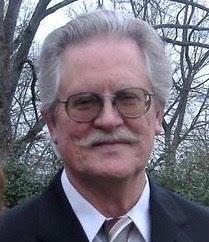
Wallace said some readers had a difficult time understanding the characters were fictitious and even tried to find the location of the farm. On occasion, Cousin Steve “would come down from Danville” to visit Uncle Robert and Aunt Bess. That led to some residents of that neighboring town actually telling Wallace they were confused as to which Steve that might be.
Uncle Robert’s garden was indeed magnificent, largely because of the ingenious irrigation system he developed by drawing water out of the nearby river using a 500-gallon tank and an elaborate network of pipes.
The couple had a nice old farmhouse that featured three porches. The back porch was for cleaning muddy feet before entering the house. The front porch was for hosting visitors, sometimes to prevent them from coming into the house. And the side porch was where Uncle Robert often delivered his pearls of wisdom.
Wallace said Uncle Robert had a simple philosophy – “first, don’t
“The vast majority of people were really great to work with,” he said. “Of course, there were a few that were kind of full of themselves, but you get that in anything you do.
“It was interesting work. I really enjoyed meeting people and taking pictures at the various events over the years. I ate a lot of meals at fire department fish fries and community chili suppers.”
After his time at Mount Ida, Wallace returned to the Glenwood Herald and retired from there earlier this year. He had planned to work until July, but health concerns led to a slightly earlier conclusion to his career.
Wallace began his journalism career in 1982 at Glenwood, employed by the Graves family, which had newspapers in their hometown of Nashville and several other communities in Western Arkansas. He later worked for John Robert Schirmer, who purchased the Graves newspapers.
“As the editor, they pretty well left me alone to do my work as long as I got the newspaper out each week,” Wallace said. “I liked that, because it allowed me to do things like playing golf on Thursdays. I enjoyed the freedom of being my own boss and making the decisions about what went in the newspaper each week. Nine times out of 10 it seemed I was putting in the paper things that people wanted to read.”
Wallace saw the staff decrease over the years at both newspapers. At the end of his career, he was the only employee at the Glenwood office. He did appreciate receiving regular ad sales assistance from a representative of the Nashville newspaper.
He said circulation was in a steady decline over the past several
Continued from page 1
years and editions ran 6 to 8 pages as opposed to the earlier 10 to 12 pages. The weekly product was, of course, larger at times, such as graduation or the county fair.
Wallace kept busy covering events in the Glenwood area, including the Centerpoint and Kirby school districts.
He earned many Arkansas Press Association awards during his career and said that, when moving to a new location at one point in Mount Ida, he counted 83 award plaques.
Many of those plaques were presented at press convention ceremonies uniquely and humorously emceed by long-time Nashville publisher Louie Graves. Wallace and his wife, Shirley Ann Campbell Wallace, attended most of them over a period of 10 to 12 years.
The Wallaces lived for years “in the woods” in eastern Montgomery County and, while working at Mount Ida, he had a 35-mile drive each day. That was reduced to about 10 miles when he switched back to the Glenwood newspaper. Wallace and his wife moved to Glenwood several years ago, prior to her death in 2022.
In addition to enjoying the community coverage over the years, Wallace received satisfaction as a writer. He even published a book in 2010. A western novel entitled “Deathwind,” its main character is a young man named James Cooper. Again, there were family references involved – Wallace’s grandmother’s maiden name was Cooper, and he has a brother named James.
“I had a good editor who helped me learn a lot of tricks of the trade,” Wallace said. “It was just something I always wanted to do.” The book sold about 500 copies.
Wallace grew up in the Tulsa area, but his family moved to Colorado, and he graduated from high school in Golden in 1963. He served four years in the Army, three of them in Southeast Asia.
His wife was his childhood sweetheart, and they were married for 54 years. Her family was from Montgomery County, which was the reason for their move there in 1978 after Wallace had spent a few years working in architectural drafting in the Tulsa area.
The Glenwood Herald has been purchased by Dewayne Holloway and Gail Pitts, who also publish the Montgomery County News and the Threshing Floor of the Ouachitas. “We would like to thank Mike Wallace for his years of work at the Glenwood Herald and wish him well as he enters retirement,” Holloway said at the time of the purchase.
Wallace appears ready to completely embrace his retirement years. “I had bought a new camera not long ago, but I just walked off and left it at the newspaper office,” he said. “And now I don’t even have a computer at home. I looked at one for 40 years. That’s long enough.”
It’s highly doubtful that Uncle Robert and Aunt Bess had one either.
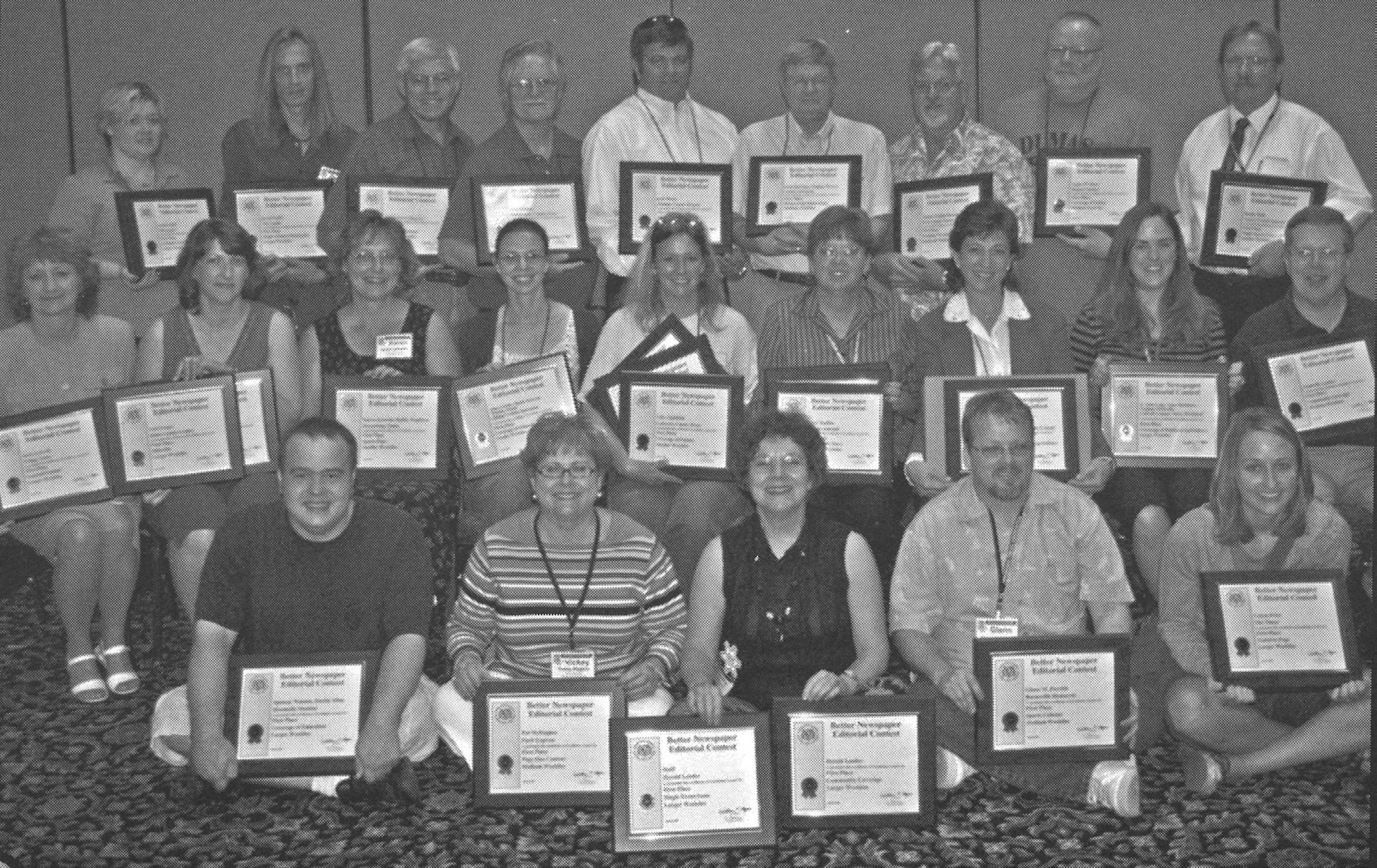

Whether you’re planting a tree or digging a post hole, it’s critical to know what’s underground. Safety is in your hands. Every dig. Every time.
Have your buried utilities marked before you dig.
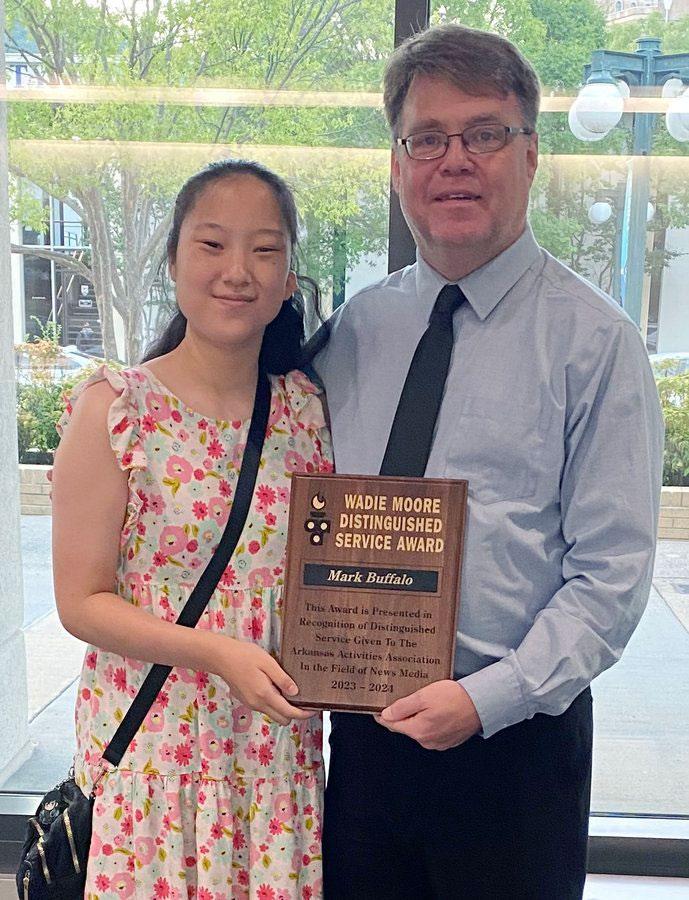
Mark Buffalo
Veteran journalist Mark Buffalo, sports editor of the Log Cabin Democrat in Conway, was named the 2024 recipient of the Wadie Moore Distinguished Service Award for coverage of high school sports by the Arkansas Activities Association during its annual Hall of Fame Banquet on July 12 in Hot Springs.
Buffalo began his sportswriting career during his senior year of high school, covering the Carlisle Bisons for the student newspaper. He went to work as a reporter for the Cabot Star-Herald, Lonoke Democrat and Carlisle Independent, all three owned by Magie Enterprises, in 1995, and advanced to sports editor of the group in 1997.
In 2014 Buffalo moved to sports reporting at the Arkansas Democrat-Gazette, before leaving in 2019 to freelance for it and other area newspapers. He took the sports editor position at The Daily Citizen in Searcy in January 2021, and joined the staff of the Log Cabin Democrat in November 2022.
“Receiving this award is truly the greatest honor of my journalism career,” said Buffalo.
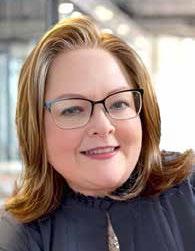

Reaves & Williams Publishing Group of Cookeville, Tennessee announced its acquisition of Lewis County Press of Canton, Missouri on July 15.
Lewis County Press publishes 11 newspapers across six states, including the DeWitt Era-Enterprise
RWPG is run by the husband-and-wife team of Clarissa Reaves-Williams and Herbert Williams, who also own Shine Messengers, a PR firm and recording studio, and Cookeville Now, which includes a YouTube channel and podcast dedicated to uplifting content and community stories.
“This acquisition reinforces RWPG’s belief in community journalism as the heartbeat of America,” said Williams in the announcement of the acquisition. “The newspaper, whether in print or online, is the soul of the community.”
“I deeply appreciate our incredible
team and am committed to fostering an environment of honest, transparent journalism,” said Reaves-Williams. “In an era when credible information is more critical than ever, we strive to grow our audience and serve our readers with quality community content sourced from trusted and dependable sources. We understand that our community needs us, and we need them too — whether as the living history textbook, or in promoting our local businesses, we are here for our readers, advertisers, and team.”
“As the former CTO of the newspaper group, I am thrilled to see this come to fruition,” said former Lewis County Press partner and CEO of Community Journalism Project (Workbench) Patrick Schless. “The Williams family has a deep commitment to community journalism, and their innovative vision will undoubtedly drive the success of the newspapers and digital platforms.”
The Arkansas Newspaper Connection is a weekly newsletter published by APA connecting freelance and independent writers, editors, photographers and designers with Arkansas newspapers in need. Lists available job openings and other opportunities at Arkansas newspapers and associate member organizations. Send your listings to info@arkansaspress.org
Report for America has opened applications for local newsrooms interested in partnering to host emerging and experienced journalists for up to three years.
Report for America is a national service program that places talented journalists, called corps members, into local newsrooms to report on under-covered issues and communities, while covering a portion of their salaries. The program currently supports 59 talented journalists in 50 newsrooms, including three reporters in Arkansas.
Prospective newsrooms must identify specific under-covered communities or issues. Additionally, newsrooms must explain why the proposed beat is vital to its audience and the community, demonstrate a commitment to inclusion and support of a diverse staff and commit to try to raise money from local funders to pay for part of the corps member’s salary.
Through the program, host newsrooms receive:
• Diverse, talented slate of candidates to choose from
• Subsidized salary support for up to three years
• Local fundraising coaching and resources, including the opportunity for fiscal sponsorship to accept donations
• Extra training and mentoring for journalists

Up to 50 new journalists will be placed in 2025. The deadline to apply as a host newsroom is Sept. 13. To learn more, visit www.reportforamerica.org or send an email to: recruitment@ reportforamerica.org.
An informational Zoom meeting will be held on Wednesday, July 24 at 1 p.m. Central. Visit https://us02web.zoom.us/webinar/register/ WN_ThaQ2MblSJ-qB5xwRMdtzQ#/registration to register.
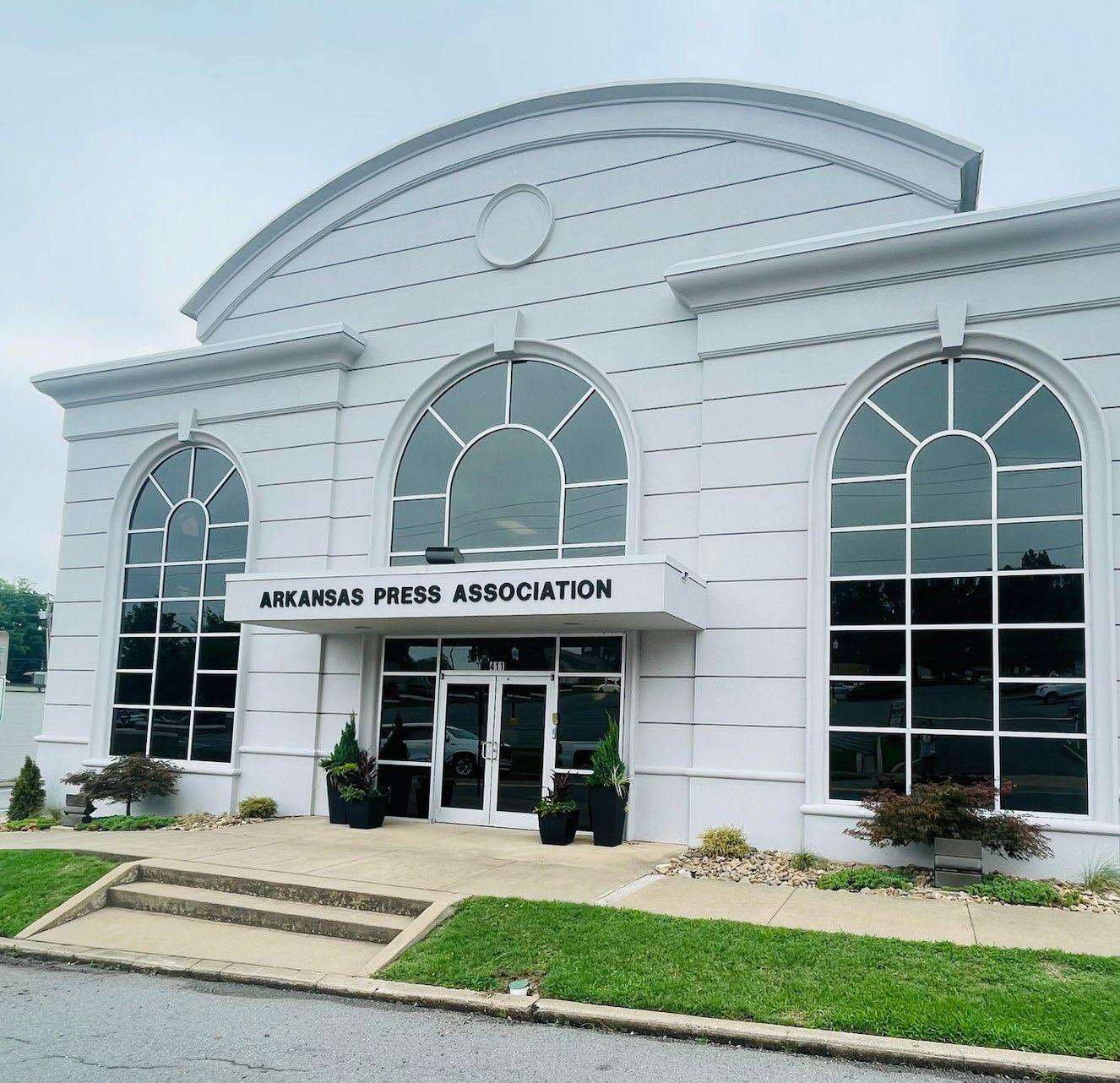



My final stop after six straight weeks on the road – I drove 64 hours between conferences – was to visit with the members of the Arkansas Press Association as they met at Arkansas State University in late June. In addition to the travel, I spent most of my “free” time during mid/late June preparing to speak to this group on a topic that is hard for many folks to wrap their heads around: artificial intelligence. I understand people’s reluctance to discuss AI. There’s been a lot of misinformation floating around, and it’s challenging to know what’s real and what’s not when it comes to the subject. When talking with friends in the “high-tech” world, I often feel like they’re trying to sell me on AI, even though I know more than most folks about the topic.
Over four weeks, I listened to lectures by the world’s leading experts on AI. I held focus groups with folks of various ages, including one focus group of professionals in the 25-30 age range. I really wanted to find out what they know – living under the assumption that younger minds should know more than me about these things – that could help me understand what I’m missing. I surely didn’t want to be embarrassed in front of an audience in Arkansas. I even pestered my brother, who is one of America’s foremost experts in the area of high technology.
More than 100 newspaper publishers participated in a survey of community newspapers I distributed in early June. I primarily hoped to learn how newspapers currently use AI and whether publishers felt its use was advantageous to their papers.
As I stood in front of the audience in Arkansas, more seats were being added to accommodate several university faculty members who learned I would speak that day. Several of those same faculty members stayed long afterward to ask
Newspaper publishers share their feelings about artificial intelligence
By Kevin Slimp
questions and discuss ways they could use the information I’d presented with their classes.
I began my discussion by learning about the group in front of me. Using a tool that allowed audience members to respond to questions on their phones while their responses appeared immediately on the large screen, I quickly learned that the group was very diverse in ages and job titles. Almost equal numbers of editors, reporters, publishers and university faculty were represented. Although present, there were fewer designers, ad reps and others. Next, I asked the group to enter (on their phones) the first word that comes to mind when they hear the term “artificial intelligence.” Looking at the list on the screen, it felt like I was looking at the script of an 80s sci-fi movie. Words like “terminator,” “war games,” “robotic” and “threat” appeared. Audience members were free to enter any word. There were no prompts. The three words that appeared most often were “fake,” “scary” and “robot.”
Before getting into the specifics of AI and its origins, I shared some results of my June survey of community newspaper publishers. In a nutshell, we learned that 45 percent of publishers reported their newspapers had never used AI, at least as far as they knew. Fifty-five percent responded that their papers had used AI.
And how were they using AI? Very sparingly, according to their responses. Respondents were allowed to expand on their answers and were quick to share how little or how much they were using AI tools. The most common tool mentioned was ChatGPT (29 percent responded that their newspaper had used ChatGPT), followed closely by newspapers that had used AI tools in Adobe Photoshop (20 percent).
Most of the respondents whose papers had used ChatGPT added notes in the essay
area to be sure I knew that ChatGPT was not being used to write stories. ChatGPT was used for various reasons, including getting headline ideas and background research.
The space allotted for this column each month doesn’t allow me to share everything I shared with the group in Arkansas. You might be interested to know that the group left feeling much better about their knowledge of artificial intelligence, and some showed me the pages of notes they had taken during our time together.
My brother was hesitant to share too much with me. He plays an essential role in computing and high technology in the U.S. However, he did share a quote that summed up much of what I discussed with the group in Arkansas:
“We shouldn’t be afraid of AI. Just like the internet (when it was new), we knew it could do good things, and we knew it could do bad things. There’s no need to be afraid of it. We can’t stop it, so we might as well figure out what parts of AI to use and what parts of AI to leave alone.”
And that, my friends, concludes my 800 words for this column.
Kevin Slimp is a popular consultant, advisor and trainer in the newspaper industry. From 1997-2018, Kevin directed The Newspaper Institute of The University of Tennessee. He currently serves as CEO of Market Square Publishing and Chief Guru at NewspaperAcademy.com. Email him at kevin@kevinslimp.com.